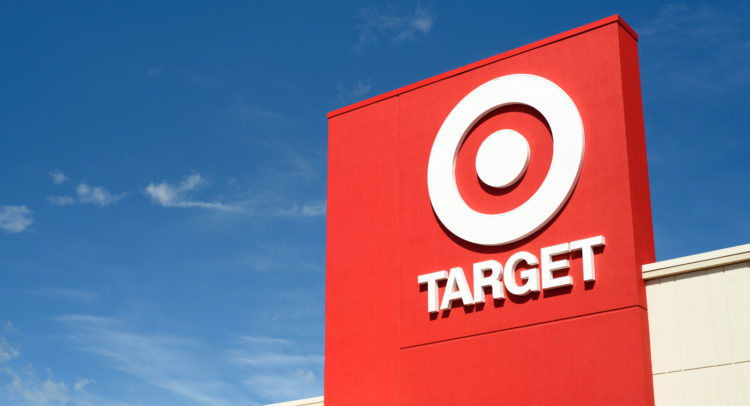Retail titan Target (TGT), one of a few retailers who could actually take a fight to Walmart (WMT), recently turned in its earnings report. The result was a bloodbath of traders stampeding for the exits. The stock lost around 25% in premarket trading today, and the losses continued throughout the trading session today.
Invest with Confidence:
- Follow TipRanks' Top Wall Street Analysts to uncover their success rate and average return.
- Join thousands of data-driven investors – Build your Smart Portfolio for personalized insights.
Target’s problem was familiar and already echoed by Walmart’s results. It’s not surprising that I’m bullish on Target. It’s got most of the same secret sauce that Walmart has, with a slightly more upscale presentation that could give it an edge, going forward.
Until today’s trading, Target’s last 12 months ended up with Target trading at about the same level it was this time last year. However, today’s results sent Target shares to lows not seen yet this year.
The latest news sent Target on a rocket sled downward. Target’s earnings report featured a substantial miss on earnings, coming in at $2.19 per share in adjusted earnings. A Refinitiv consensus called for $3.07 in earnings.
The most distressing part was that revenue was actually a beat. The Refinitiv consensus called for $24.49 billion for the quarter. Target turned in $25.17 billion.
Sales were also up overall; comparable sales were up 3.3% in the first quarter, and that’s with a 23% increase from a year prior. The problem, however, was one of inflation; those gains came with “unusually high costs” that ate into earnings.
Wall Street’s Take
Turning to Wall Street, Target has a Moderate Buy consensus rating. That’s based on 14 Buys and five Holds assigned in the past three months. The average Target price target of $278.50 implies 73.6% upside potential.

Analyst price targets range from a low of $240 per share to a high of $302 per share.
Investor Sentiment is Tepid but Slightly Negative
Target currently carries a Smart Score of eight out of 10 with TipRanks. That puts it in the lowest level of “outperform,” but it is still considered likely to do better than the broader market. The investor sentiment, meanwhile, is in little rush to embrace that projection, yet doesn’t seem to reject it, either.
Hedge fund involvement, for example, is on the decline, as revealed by the TipRanks 13-F Tracker. However, it’s not on the decline by much, and overall, hedge funds have not done a lot of adjusting in the last year.
In the period between December 2021 and March 2022, hedge funds pulled back on TGT stock by a little less than 100,000 shares. In the quarter before that, they raised involvement by close to the same amount.

Insider trading, meanwhile, was brisk and somewhat sell-weighted. In the last three months, sell transactions outweighed buy transactions by 46 to 41. There were no transactions of either stripe recorded for April, however.
Going back to the last 12 months, meanwhile, shows that Target selling has been going on for some time but in lower numbers. Sell transactions again outpaced buy transactions by 65 to 46.
Retail investors, at least those who hold portfolios on TipRanks, maintained their interest in the discount retailer quite well. TipRanks Portfolios that hold Target shares are up 0.6% in the last seven days and up 1.3% in the last 30 days.
As for Target’s dividend history, it’s excellent for income investors looking for a solid play. Target not only kept up its dividend for the last 54 years, including during the worst of the pandemic, but it’s also offered regular raises.
One of Walmart’s Only Real Challengers
Target is a powerful force in retail. We saw as much back in 2020 when the worst of the pandemic was going on, as the company expanded greatly by virtue of its status as an “essential retailer.”
It was allowed to remain open when many of its competitors were shuttered by government mandate. Target, in turn, built on this premise by rolling out numerous smaller-footprint stores in major urban areas.
Back in 2019, these were considered Target’s “biggest weapon” against both Walmart and its other major competitor, Amazon (AMZN). With good reason, too; it offered a way for customers to see and interact with products but also make key decisions about product lines based on area.
For instance, the small-footprint stores in college towns know just when to stock up on dorm essentials and school supplies. Small-footprint stores also serve as an excellent option for online order pickup points, which undercuts Amazon wonderfully.
No matter what you order from Amazon, it will take roughly a day to reach you, or perhaps a few hours, depending on what you order and where you have it sent. An order pickup point means you can have the order within minutes if you want to get it yourself.
Given that Target was opening small-format stores as recently as April 2022, it’s clear Target hasn’t pulled back from this stance yet.
Target has one other advantage in its ongoing battle with Walmart: a slightly more upscale presence. There’s a reason shoppers sometimes mispronounce Target’s name as “Tar-Jay”; an unnecessarily Francophiliac mispronunciation provides an air of class where it really shouldn’t exist.
As we go into a period of growing inflation, where many higher-end goods seem out of reach, Target can provide something of an also-ran; better stuff than a Walmart, but not so much better that it’s beyond the normal household budget.
That, in turn, can provide some necessary encouragement to a struggling household. It’s not so bad, the household can say. At least we can still afford Target.
Concluding Views
Target has something of a useful competitive advantage on its side. Its items are still reasonably priced by most accounts, but they’re of a decent enough quality that they don’t look like the buyers are trying to save a buck.
That’s going to be helpful for a lot of households facing budget cuts for one reason or another.
Target’s huge share price drop today may well prompt some buying interest later. Yes, it lost badly in earnings. However, that loss was due mainly to conditions that haven’t been seen in decades, if ever.
The rapid expansion of inflation was undoubtedly unforeseen by most. Now, Target is trading well below its lowest price targets and has plenty of upside potential.
The combination of factors behind Target ultimately leaves me bullish. The new Big Three of retail right now has to be Amazon, Walmart, and Target, and Target is sufficiently off its lows to draw my interest.
Discover new investment ideas with data you can trust.
Read full Disclaimer & Disclosure









